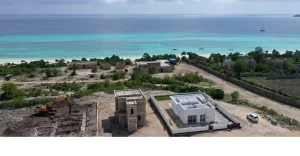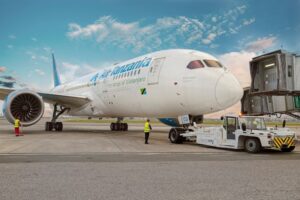
Cape Town. The Tanzanian government has reiterated its ambitious plan to increase internet users to about 80 percent of the population by 2025 after taking measures that will expand the network coverage.
According to the Tanzania Communications Regulatory Authority (TCRA), some 29.1 million people had access to internet in Tanzania by June this year, which is equivalent to about 49 percent of the population and the government wants to elevate it to 80 percent in 2025.
Deputy Minister for Information, Communication, and Information Technology, Mr Kundo Mathew who spoke during a digital summit, held in Cape Town, said recently that measures such as providing subsidies to mobile operators to upgrade 2G technology to 3G would help to achieve the targets.
“Following the 5G service launch in major centres in the country, access to the internet, particularly mobile broadband, has recently begun to take off. It is estimated that there are around 49 users per 100 inhabitants. The government is aiming for 80 percent penetration by the year 2025,” he said.
The conference, which was sponsored by Huawei, among other things, provided an opportunity for participants to discuss various topics on Sustainable Development in ICT and infrastructure.
Mr Mathew said the country has made great strides in the development and use of ICT and is committed to placing it at the centre of its development agenda.
“We have made several initiatives, including recognising, building the capacity and skills of ICT professionals, providing foresight and trends in ICT through research in collaboration with ICT stakeholders, and fostering strategic investment in ICT,” he added.
According to him, there are various initiatives that the government, in collaboration with other stakeholders such as Huawei, has taken to promote the use of ICT in education.
“Broadband connectivity making should be a global priority. We should all work towards that end to use the benefits of digital technology in all sectors of society and the economy,” he said.
Huawei’s president of Southern Africa Carrier Network Business Group Samuel Chen said governments had a critical role to play in setting the foundation and creating a cost-effective computing environment that allows every citizen to enjoy world-class connectivity.
Share this news
This Year's Most Read News Stories

Tanzania readying to talk to British developer over Zanzibar land lease revocation
Dar es Salaam. British firm Pennyroyal Limited has said it will sue the Tanzanian government over leasehold revocation in Zanzibar, but the Attorney General has confirmed that they are preparing to meet with the investor.Continue Reading

Zanzibar airport operators decry job losses over Dubai deal
Tanzania air operators say over 600 workers are set to lose their jobs after the semi-autonomous government of Zanzibar awarded a Dubai-based company exclusive rights to handle ground services at a refurbished airport.
The Tanzania Air Operators Association (Taoa) said in a statement that the contract awarded to Dnata, which is registered at the London Stock Exchange, was in breach of the law banning any company from having exclusive rights to ground-handling services at major airports.Continue Reading

Tanzania central bank tells hotels to obtain foreign currency exchange license
BoT governor, Emmanuel Tutuba, urges tourist hotel owners and operators to obtain foreign currency exchange licences to combat the black market.Continue Reading











